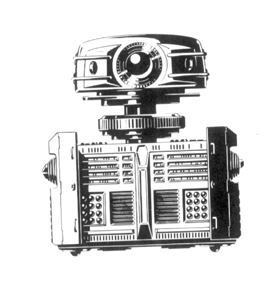![[Metroactive Features]](/features/gifs/feat468.gif)
[ Features Index | Santa Cruz Week | SantaCruz Home | Archives ]
High-tech detectives can now find evidence you thought you deleted
By Najeeb Hasan
WHEN A SAN DIEGO WOMAN began romancing a man from Oregon over the Internet, she soon discovered the hard way that love hurts. She invited her cyberfriend to join her in San Diego, and, after spending the weekend with him, was nearly bludgeoned to death.
Authorities moved quickly. They seized the computers of both the victim and the suspect, and recruited the San Diego Regional Computer Forensics Laboratory (RCFL), whose investigators found records of chat conversations between the two as well as the suspect's travel plans to San Diego on both computers--all evidence that helped convict the cyberdate for attempted murder.
The suspect may have thought his tracks had vanished into thin air. But as the bad guys are learning, in the future, there's sometimes no such thing as thin air.
This sort of high-tech sleuthing will soon come easier for computer-loving feds in Silicon Valley. The FBI is set to introduce a similar, $3 million computer forensics laboratory into the area next year to help battle everything from child porn to terrorism. The 12,000-square-foot lab, at the Dumbarton Bridge in Menlo Park, will serve detectives from San Francisco, San Mateo, Santa Clara and Alameda counties. Investigators will be able to bring personal computers and disks to the lab so that hardware and software can be gutted for deleted files, emails, encrypted documents and other evidence of wrongdoing.
Aside from the lab in San Diego, only one other fully operational lab currently exists. That one's in Dallas, Texas. Meanwhile, along with the Silicon Valley project, two others--in Chicago and Kansas City--are also in the works. Additionally, there are two other RCFL centers in the United States that are not FBI-affiliated. The labs are a result of teamwork among local, state and federal agencies. In San Diego, for example, the feds provide funding for equipment and training while other agencies--such as the district attorney's office and the San Diego Police Department--supply the manpower.
Computer forensics labs specialize in examining digital legal evidence. It sounds complicated, but to detectives familiar with computers it's like any other evidence you might find at a crime scene.
"When you're at a crime scene, you could pick up a fingerprint," explains Randall Bolelli, the director of the San Diego lab. "In our realm, evidence of just about any kind can be found stored on a computer or a computer disk. If authorities found a computer with child pornography on it, they would bring it here for our analysis."
They copy everything that was ever stored on any of the drives to keep the original information in tact. Then they weed through the info and find whatever is needed to buffer court testimony and put bad guys away.
Bolelli says most of the evidence his lab examines is located on personal computers or disks. But other methods of storing digital information are also becoming more common, including CDs and thumb drives. Essentially, thumb drives are smaller hard drives that click into a computer's USB port.
So, if you're a crook and think you're in the clear because you deleted the evidence, think again.
"The one thing that probably surprises most folks is that we could, in many instances, retrieve deleted information," Bolelli says. "If for whatever reason you decide to delete a file, most folks think it's gone. That's how the bad guys get into trouble. They think they deleted the evidence."
If you trashed the file where you saved the blueprints of the bank next door, chances are it's still floating around in your computer somewhere. Now that you're in the future, maybe it's best to go ahead and destroy your whole computer.
The Future, Conan?
More glimpses into the future from Metro Santa Cruz writers
Bring on the Robots: Some experts predict that we're entering the Robotic Age. Does that mean we don't have to pick out our own socks anymore? Not quite. (Traci Vogel)
The Original Frontier: Humankind's confusing relationship with the time machine. (Michael S. Gant)
When Cars Fly: No, really. Your Skycar is just around the corner, if one visionary Davis company has its say. (Allie Gottlieb)
Implanted for Life: Help! There's a chip in my body and I can't get it out. (Corinne Asturias)
Full Circle: When you graduate in 1984, the future is yesterday's news. (Todd Inoue)
Copyright © Metro Publishing Inc. Maintained by Boulevards New Media.
![]()

Kill Your Computer
From the January 8-14, 2003 issue of Metro Santa Cruz.